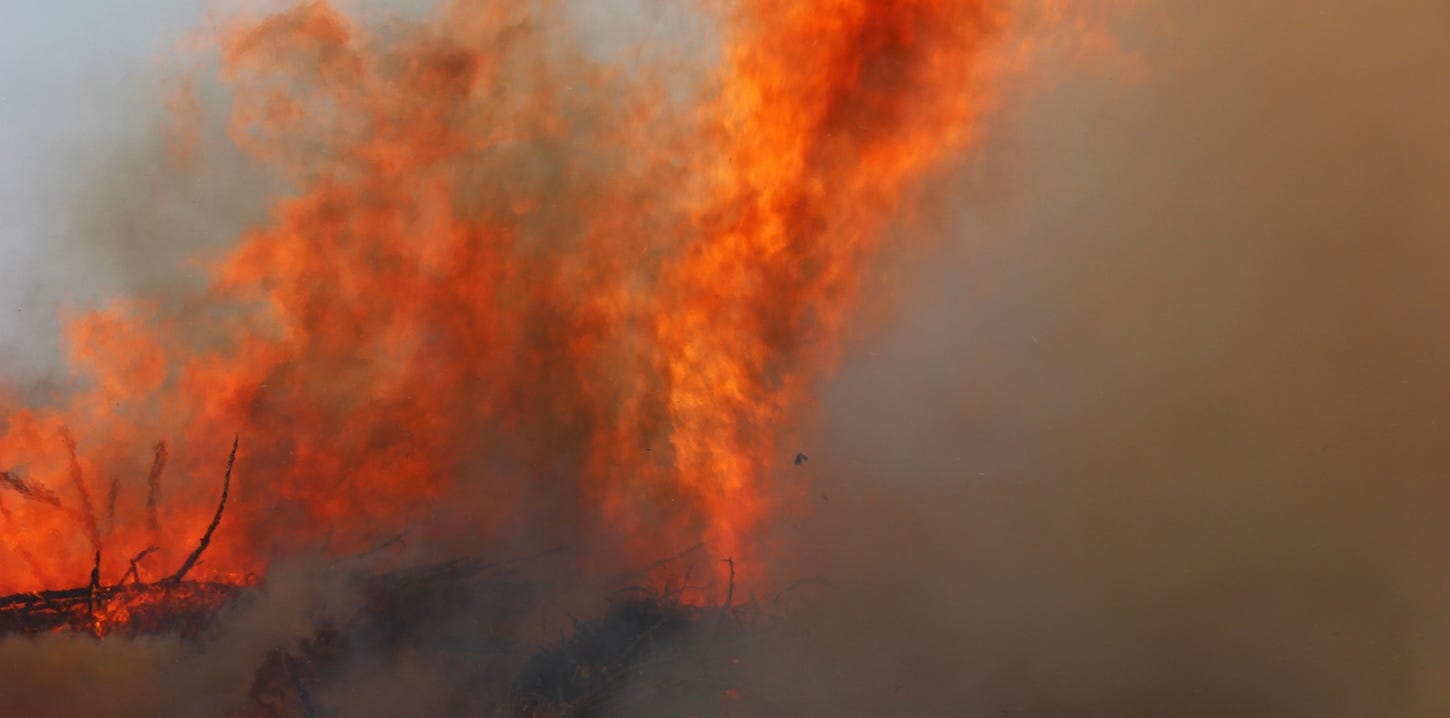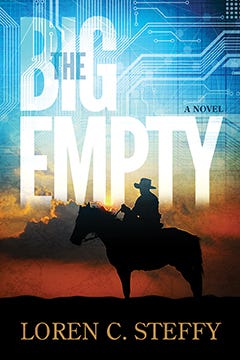Texas Panhandle Fires Touch Two Books
Sometimes life follows fiction, and sometimes when it does, it can hit close to home.
One of the things that’s surprised me about writing fiction is how real life often follows a storyline that may have seemed unlikely or even absurd when you wrote it.
As I read about the recent wildfires in the Texas Panhandle, it made me think of a similar fire in my novel The Big Empty, which takes place not far from the areas that have burned, and the connection to another of my books, The Last Trial of T. Boone Pickens.
Fires in the Panhandle are all too common and, indeed, I used a fire in The Big Empty because people I’d talked to in West Texas frequently spoke of past fires and the threats posed to life, livestock, and livelihoods. But it was the cause of the fire that was the true connection. In my book, downed power lines start the blaze on the fictional Conquistador Ranch. Now, investigations have pointed to a downed power line as the possible cause of the recent Smokehouse Fire in the Panhandle.
While The Big Empty is fiction, it delves into issues facing rural communities including water, electricity, housing, and land use. In fact, before the paperback was released last fall, Tom Fox, best-selling author and founder of the highly acclaimed series, “Fox on Compliance,” interviewed me for an award-winning five-part podcast series looking at real-world issues from the book. I included a written version of the series as a supplement to the paperback. (You can also find it as a stand-alone ebook.)
The fictional fire in The Big Empty was far smaller than the devastating blazes in the Panhandle, which killed three people and thousands of head of cattle. Damages, including lost homes and businesses, may exceed $1 billion.
The Panhandle fires burned much of what was Texas billionaire T. Boone Pickens’ Mesa Vista Ranch near Pampa. I met my co-author, Chrysta Castañeda there in 2018. I was on assignment for Texas Monthly, writing about Pickens’ decision to sell the 100-square-mile property. Chrysta and I began talking about the court case in which she had represented him a couple years earlier. Those discussions would eventually lead to our book, The Last Trial of T. Boone Pickens. It would also be the book that led to the start of my company, Stoney Creek Publishing.
The wildfires have destroyed the first home Pickens built on the property as well as damaging some other structures. In addition, much of the land that Pickens, an avid quail hunter, spent years developing as a wildlife habitat for ground-dwelling birds has been razed.
Pickens prided himself on his quail conservation efforts. The northern bobwhite population in Texas fell 75 percent between 1980 and 2005, and it has remained at about that level ever since. I still have a hat from my trip that declares the ranch “The World’s Best Quail Hunting.”
After Pickens’ death in 2019, the 64,000-acre Mesa Vista Ranch sold to two different owners. Travis and Kylee Chester bought about 27,000 acres. Speaking to Outdoor Life, Kylee Chester commented on the wildfires’ devastation. “All that habitat that the quail were in, most of those plum thickets and sagebrush that T. Boone didn’t even graze for years because he wanted the wildlife to be plentiful, it burned all that. Of [our] 27,000 acres, it probably burned around 26,000.”
It’s unknown how many birds may have been lost in the fire, but the blaze itself is only part of the issue. The loss of ground cover could pose a serious threat to quail other ground-dwelling species that survived, leaving them vulnerable to predators such as hawks.
However, fire is a natural part of the ecological system in West Texas and, once the area gets rain, grasslands, including prime quail habitat should return quickly.
But it will take years for the Panhandle—the land and its residents—to recover from the disaster. People will rebuild and recover, of course. Living in a harsh land imbues them with a special kind of resilience. But it won’t be easy. Unlike a story in a book, they can’t simply turn the page.






